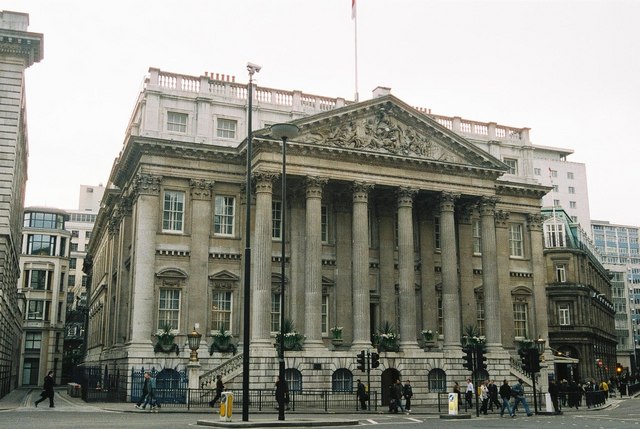

Is it corruption if it's legal?
In the 18th century, a group of aldermen in the CIty of London, the small, historic center of London with its own government and laws, found a creative way to raise the money needed to build a residence for the Lord Mayor of the City.
A bit of background: Following the 17th century English Civil War and the Restoration, all English officeholders were required to be at least nominally members of the Church of England, effectively excluding all Catholics, Jews, and Dissenters. (They were also excluded in the same way from the universities and professions.)
 In 1742, a Dissenter named Robert Grosvenor was elected Sheriff of the City of London. But as a Dissenter, he declined to take the Sacrament (Holy Communion) by the Anglican rite and so was unable to serve.
In 1742, a Dissenter named Robert Grosvenor was elected Sheriff of the City of London. But as a Dissenter, he declined to take the Sacrament (Holy Communion) by the Anglican rite and so was unable to serve.
The Corporation, the governing body of the City of London and made up of loyal members of the Church of England, saw an opportunity there. A goodly number of Dissenters were merchants and businessmen in the City, occupations that did not require them to be members of the Church of England. So the Corporation passed a law declaring that anyone who was nominated for the office and declined to run would be fined £400. Anyone who was elected and declined to serve would be fined £600.
In twelve years, the Corporation had collected £15,000, which was used to build Mansion House, the official and impressive residence of the Mayor of London, pictured here.
In 1754, the Dissenters rebelled. George Streatfield and Alexander Sheafe, both Dissenters, were elected as Sheriffs.
They refused to serve. They were fined.
They refused to pay the fine.
It went to court. The Sheriffs Court decided against the Dissenters. They appealed. The Court of Hustings (rather like a county court) also decided against them. They appealed again. This time a special commission of five judges, ruled in the Dissenters’ favor. Not to be outdone, the Corporation appealed to the House of Lords.
Finally, in 1767, judgment was given in favor of the Dissenters, who were now exempted from taking office without any fines being levied.
They weren't allowed to hold office, however, until the Test and Corporation Acts were repealed in 1828.

Comments
Post new comment